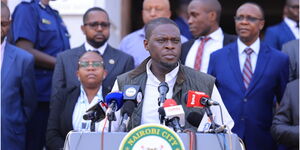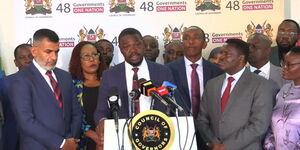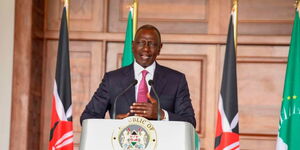The controversy surrounding the legality of the new currency emerged after the National Assembly confirmed that the Central Bank of Kenya did not follow due process.
This was according to a letter dated June 27, 2019, from the National Assembly clerk, Michael Sialai, responding to an inquiry by activist Okiya Omtata.
Omtata had asked for a response to his request for information on tabling of the motion for the new currency in Parliament by the CBK.
“From our records i.e. Hansard reports, votes and proceedings and register of statutory instruments as set out in section 11(3) of the statutory instruments Act, we wish to confirm that the legal Notice No.235 of 7th December 2018, Legal notice No.72 of 31st May 2019 and legal notice No 4849 of 31st May 2019 are yet to be transmitted to us to register and cause tabling in the National Assembly,” the letter read in part.
A report by Citizen Digital stated that the information in the letter confirmed that the move by the Central Bank in December 2018 and May 2019, to announce the issuance of new notes and coins and demonetise the old Ksh 1,000 tender, was unlawful.
Omtata argues that the clerk confirmed to him through the letter that the notices were not presented before Parliament as required by the Statutory Instruments Act.
The notices were supposed to be tabled in the August house within 7 days of them being published and for failure to do so, those notices automatically become invalid, null and void.
The activist insists that subsequently, the new coins and notes have no legal standing.
“I will amend my petition to also have the new currency coins be invalidated because when I was filing my petition I didn’t have the information,” he added.
Chief Justice David Maraga has empaneled a three-judge bench to hear the petition after a lower court determined that the petition actually raises substantive issues of law.












